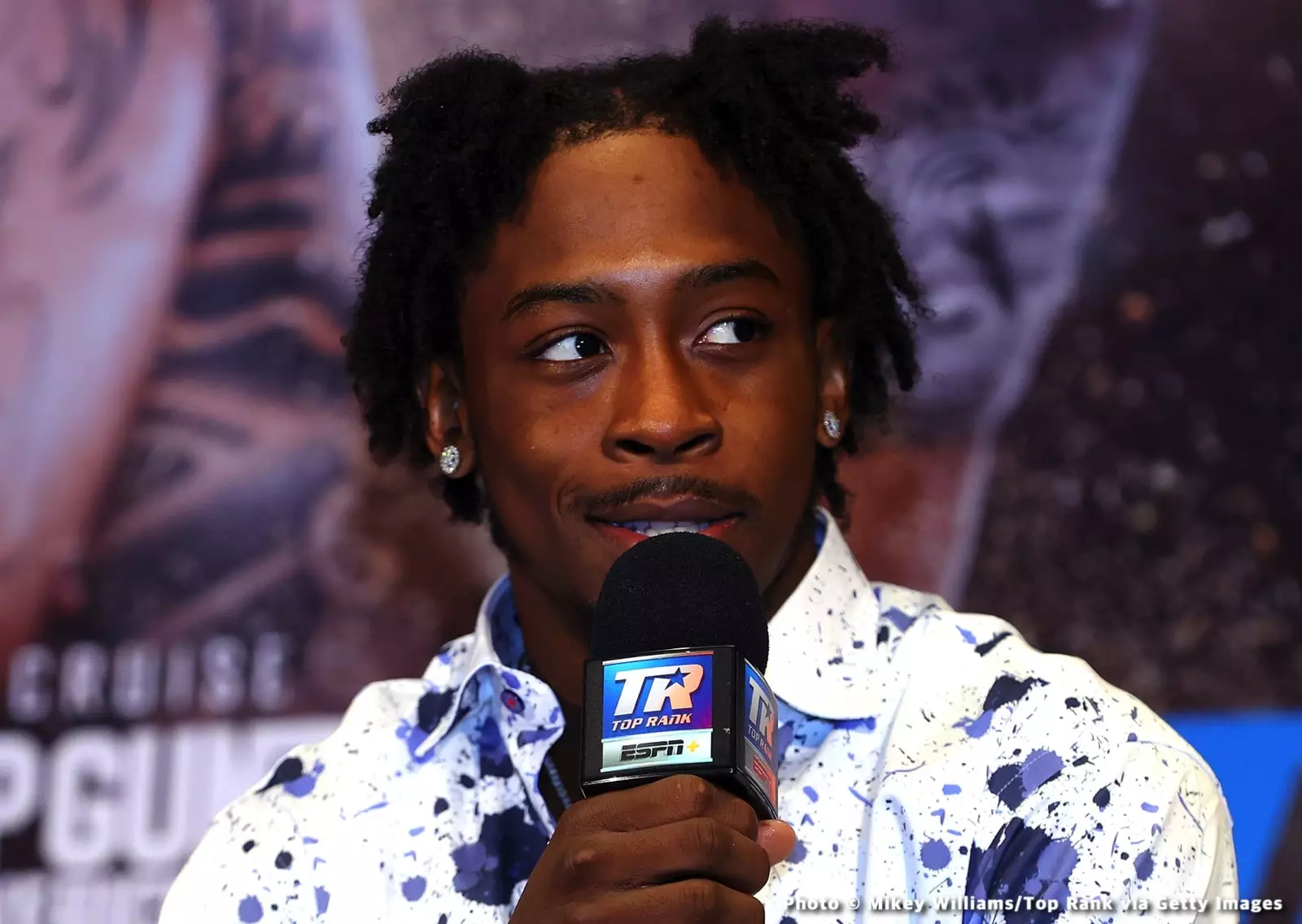In the often contentious world of boxing, losing gracefully is just as vital as winning. However, rising star Keyshawn Davis has openly criticized Devin Haney’s recent legal actions against Ryan Garcia as revealing a deeper character flaw: softness. Haney’s decision to sue Garcia after their April matchup—alleging that Garcia’s positive test for a trace amount of the banned substance Ostarine was a determining factor in his defeat—raises a multitude of questions about sportsmanship and the ability to accept defeat. Rather than viewing the lawsuit as a legitimate course of action, Davis asserts that it reflects Haney’s inability to cope with failure in a competitive setting.
Keyshawn Davis’s strong stance against Haney isn’t just a casual remark; it taps into a larger conversation about how athletes handle defeat. Davis grips the narrative that Haney is a “daddy’s boy,” someone who has been sheltered and offered advantages throughout his boxing career. This commentary resonates in contexts far beyond boxing; it reflects a cultural critique of entitlement often associated with individuals who have not faced genuine adversity. The suggestion that Haney’s reliance on legal measures to address a perceived slight rather than seeking a rematch illustrates a mindset that prioritizes blame over growth—a narrative that resonates with many critics who believe this undermines the integrity of the sport.
The reactions from the boxing community have largely sided with Garcia, with many fans expressing their dismay at Haney’s choice to pursue legal action instead of confronting his loss head-on. This backlash raises concerns for Haney. Instead of positioning himself for potential rematch talks that could showcase his ability to reclaim his standing, he has inadvertently alienated fans and other boxers alike. The perception that Haney is seeking to “whitewash” his loss through litigation diminishes his credibility as a sportsman.
Moreover, the broader implications of such lawsuits within the realm of sports often lead to a slippery slope. Many athletes risk not only their reputations but also the sanctity of competition by prioritizing legal recourse over sportsmanship. The focus on disputes rather than athletic performance can shift fan interest to outside-the-ring controversies, which often leads to diminished marketability for individuals embroiled in legal battles. Haney finds himself at a critical juncture; his choice to engage in litigation may come to define him more than any of his accomplishments in the ring ever could.
Keyshawn Davis’s critique of Devin Haney illuminates a pressing issue within boxing and sports at large: how athletes respond to loss can often be as pivotal as their performance in the ring. With fans and peers rallying behind Garcia, Haney risks not only his current standing but also his future in the sport. Will he be able to reclaim his honor through continued competition, or will he forever be remembered as an athlete who shied away from defeat? In a sport built on grit, resilience, and the ability to absorb criticism, it remains to be seen whether Haney can pivot from this controversial chapter, redefine his narrative, and earn back the respect he seems to have lost.

